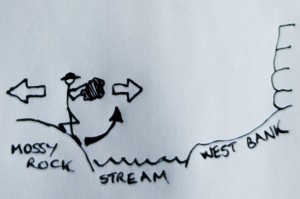The Sorrows of Young Werther aka Die Leiden des jungen Werthers (1774) is a novel by Johann Wolfgang Goethe. Goethe (1749 – 1832) is the German for polymath. He was besties with Friedrich Schiller; wrote the definitive Faust; made important advances in the study of homology in development; not only in vertebrates but also in plants; investigated the physiology and perception of colour. His fan club included Darwin, JMW Turner, Schopenhauer, Wittgenstein, both the brothers von Humboldt, Emerson and Mahler. It is entirely appropriate that the principle vehicle for German culture abroad [think British Council, Alliance français, Instituto Cervantes] is The Goethe-Institut. I'm glad we got that out of the way because, today we treat of . . .
The Sorbitols of Werther - a more contemporary issue than the triumphs and sins of a German philosopher. I disappeared down a rabbit hole of non-reducing sugars, disaccharides, and food engineering when tasked to replenish the stock of car-candy for the family jalopy. A simple enough task you might think. But I was a bit out of my depth because, of all the things I do in a car, eating candy ain't one of them. But a distant tinkle said that I really should furnish some Werther's Original Butter Candies. The only reason was that my friend K had grown up in the town where these sweets are made . . . in Germany. When I described my purchase auf Deutsch as Verther's Butter Candies, one of my kids fell about larfing because they knew that Werther's were absolutely Made in Britain . Bzzzzt - <wrong>!
My first candy-foray found me in Tesco where Werther's Original Sugar Free Butter Candy was the nearest available thing on the shelf. How "Sugar Free" and "Original" can appear in the same sentence about a product first marketed more than 50 years ago is a mystery - and also a hard No from me. I eventually tracked down Werther's Original Original Butter Candies in another place for the same price but weighing 135g rather 80g. WTF?! What is the mystery sugar-free ingredient that jacks up the price from €8.15/kg to €13.75/kg?
Well the ingredients are a matter of public record:
- Original
- Sugar, Glucose Syrup, Cream (Milk) (7.4%), Condensed Whey (Milk), Butter (Milk) (4.8%), Partially Inverted Refiners Syrup, Salt, Emulsifier: Soya Lecithin, Flavouring
- Sugar-free
- Isomalt, Acesulfame-K, Butter (Milk) (7.9%), Cream (Milk) (7%), Salt, Flavouring, Emulsifier: Soya Lecithin
hmmm Isomalt? I assumed that was an isomer of the disaccharide maltose. We familiar with the concept:
- Lactose: glucose and galactose
- Sucrose: glucose and fructose
- Maltose: glucose α(1→4) glucose
- Isomaltose glucose α(1→6) glucose
But I was wrong. Isomalt is not a synonym for isomaltose!
Isomalt is a 50:50 mix of two disaccharides, one of those saccharides being a polyol or sugar alcohol: glucose and mannitol + glucose and sorbitol. Sorbitol has a lot of leverage in food engineering because it has 2/3 the sweetness of sucrose but also 2/3 the calories. Isomalt is also useful because it tolerates heat without loss of sweetness or its pure white colour. Think how regular sugar turns to bitter caramel when you boil it up. Werther's, as a hard candy, can clearly find a use for Isomalt.
Your gut not so much. If you glom too much [like an ounce or 30g is enough trigger] polyol it arrives in your colon unabsorbed where is can cause osmotically-induced diarrhoea mit flatulence und rumblings. They say that polyols are, conversely, A Good Thing at the other end where some kill cariogenic [tooth-decaying] bacteria or at least don't cause them to grow like sucrose does. Whatevs. My body is a temple and it's not ready for artificial sweeteners.

















